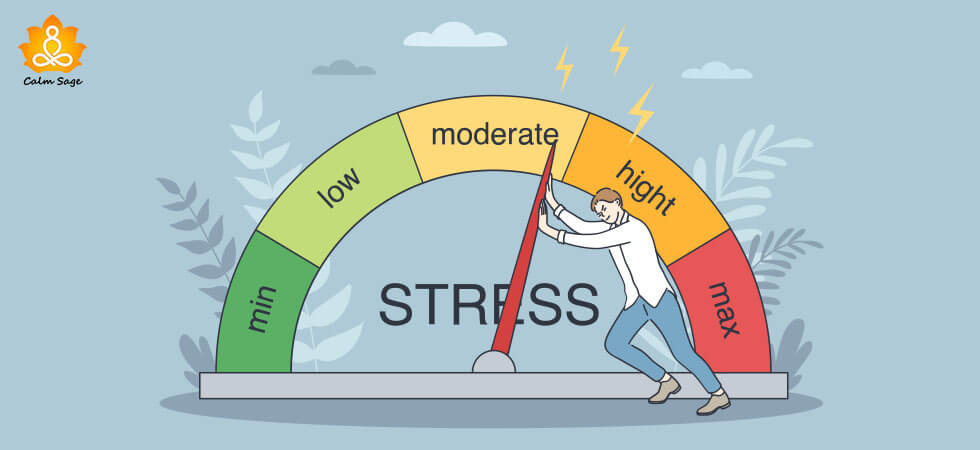Hormetic Stress: The Acute Stress That Can Be Good For Your Well-Being

In the search for a better, healthier, and more resilient life, the concept of hormetic stress has come up. Now, stress isn’t something that we’ve viewed as something negative, but when I talk about hormetic stress, it’s the kind of stress that can be positive for you. I know, weird, right?
But, this kind of acute stress is rooted in the principle of “What doesn’t kill you makes you stronger”.
This concept has garnered a lot of attention because of its potential to improve well-being through controlled exposure to low and moderate stressors. And that’s what we’re talking about in this article.
We’ll be exploring how hormetic stress can be good for you, how it works, and how you can strategically use small bursts of hormetic stress to improve your well-being and build resilience.
List of Contents
What is Hormetic Stress?
Hormetic stress refers to a phenomenon where your body is exposed to low to moderate stressors which would typically be dangerous in high amounts to stimulate your body’s response system. These responses then trigger a reaction that promotes resilience, and growth, and even improves your well-being.
This stress can also be referred to as hormesis acute stress and the term “hormesis” comes from the Greek word “hormesis” meaning rapid. This kind of acute stress can also be linked to the idea that physical exercise stresses muscles but can eventually lead to muscle strengthening.
In simple terms, hormetic stress is positive stress where your body isn’t overly affected by stress. Some common examples of hormetic stress include;
Hormetic Stress Examples
High-intensity interval training (HIIT) exercises can be a good example of hormetic stress. During the exercise, your body is pushed to its maximum potential for a short time and then it’s moved to a brief rest. Engaging in these exercises can make your body fatigued, but due to the short bursts of stress, your body is allowed to rest, increasing your resilience.
Another hormetic stress example can be taking a cold bath where your body is exposed to sudden temperature changes. If we talk about non-physical examples of hormetic stress then playing crossword puzzles, math problems, or other high-level brain games can all be good for you.
The Science Behind Hormetic Stress
Hormetic stress follows a U-shaped curve, where mostly positive changes happen in a certain range of stress intensity. Under this range, there is not enough stimulation to trigger adaptive responses and if you go above the range, the stress becomes too much, too harmful for your body. When the stress is moderate, then mechanisms such as autophagy, a process that repairs damaged cells, are activated.
Exposure to mild and moderate stressors can also promote the development of antioxidants and enzymes that reduce the risk of chronic diseases and aging. Another way that hormetic stress works is by stimulating the production of growth hormones that promote tissue repair and maintenance.
Controlled exposure to stress can also improve your immune system to respond effectively to immune threats, thus leading to better immunity and well-being, overall.
The Benefits of Hormetic Stress
Where we view stress as a negative thing, it can be hard to take the idea of hormetic stress as something good for us. However, there are various benefits of hormetic stress that we often overlook.
Here is how hormetic stress may benefit us;
- Hormetic stress triggers cell repair that leads to better cell function, longevity, and reduced risk of age-related disorders.
- Hormetic stress prompts the immune system to become robust. Controlled exposure to stress can help your body build better immunity to protect against infections and diseases.
- When mild stress is released in the body, then it can increase mental resilience and brain strength. Especially when you challenge the mind with cognitive stressors.
- Some types of hormetic stress (namely, intermittent fasting) can also help improve metabolic health by increasing insulin sensitivity and controlling blood sugar levels.
- Regular HIIT exercises and exposure to mild stress can increase heart health by improving heart functions, increasing blood circulation, and strengthening blood vessels.
- Hormetic stress can also contribute to better brain function, memory retention, and mental clarity.
- Certain types of hormetic stress (such as resistance training) can stimulate the production of growth hormones that can also help maintain body mass, strength, and hormonal balance.
- Engaging in hormetic stress can also teach the body to adapt easily to challenges. With time, this stress response can promote a holistic state of well-being.
How to Strategically Use Hormetic Stress to Improve Well-Being?
Hormetic stress can be good for you but you should know how to use this type of acute stress strategically. Here are some ways you can use hormetic stress to your advantage;
1. Engage in regular physical activity
Regular exercise and workouts can challenge your muscles and cardiovascular system, triggering a response that can lead to muscle strengthening and endurance.
2. Try intermittent fasting
Controlled food intake in intermittent fasting can stimulate cell repair and boost metabolism. You can use intermittent fasting to work on improving your metabolic health and cell functions.
3. Cold exposure therapy
Another way you can use hormetic stress to your benefit is by engaging in cold exposure therapy where you gradually expose your body to extreme temperatures (in this case, cold temperatures) to activate brown fat which burns calories to enhance blood circulation and heat.
4. Hot exposure therapy
Sauna therapy or hot exposure therapy is the opposite of cold exposure. This is when you take hot sauna baths to stimulate the production of heat shock proteins that help in cell repair and protect your body from stress-related damage.
5. Give your mind some challenges
You can also engage in cognitive activities and mental challenges to push your mental boundaries. You can try learning a new skill, solve puzzles, and practice math problems. This can help improve your brain function and build mental resilience.
What to Keep in Mind…
While using hormetic stress for your health can be good, it’s important to exercise caution and be mindful of the amount of stress you expose yourself to.
Here are some cautionary tips to keep in mind;
- Know that people respond differently to stress because of factors such as genes, environmental stressors, and other lifestyle factors. What hormetic stress means to you can mean something different to someone else.
- Make sure to gradually increase stress levels to prevent overwhelming your body’s stress response. Sudden and extreme exposure to stressors can be harmful to your body and mind.
- Make sure you leave enough recovery time between stress exposures. You need to give your body the time to repair and increase strength. Do not overload your body without leaving room for recovery, otherwise, it’ll lead to burnout.
Wrapping Up
Hormetic stress is an effective approach to improving your health and well-being by slowly exposing your body to low or moderate levels of stressors. Understanding your body’s mechanisms of stress and how it reacts to low levels of stress can help you strategically plan how to use this acute stress to your benefit.
Moderate stress exposure, gradual exposure, and enough recovery time are all important to successfully incorporate hormetic stress into your everyday life. With a mindful and well-informed approach, you can tap into the benefits of hormesis acute stress to improve your well-being, strengthen your body, and increase your resilience to stress.
I hope this article helped you understand what hormetic stress is, how it works, and how you can use this acute stress to your advantage, strategically. Let me know what you think about this article in the comments below.
Take Care and Be Well!




















